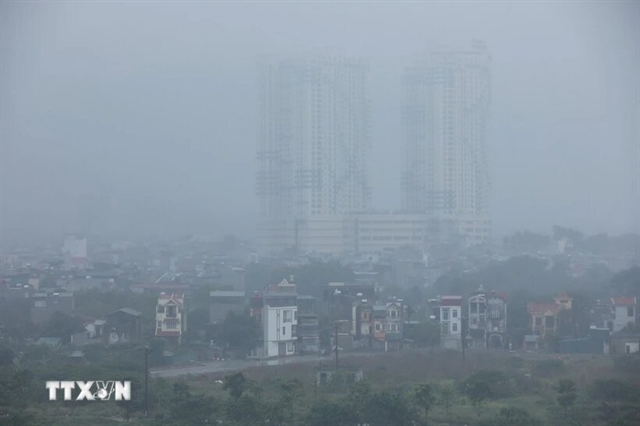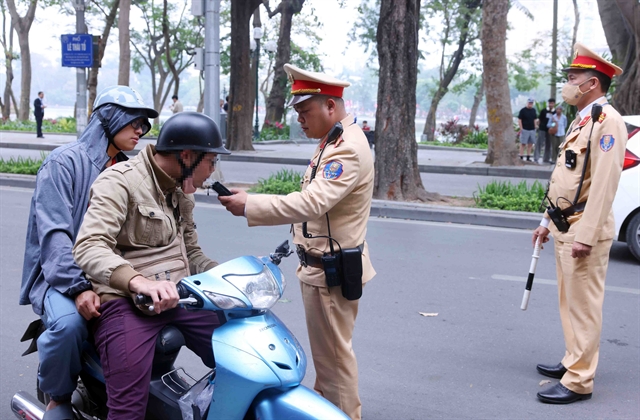 Society
Society

 |
| Air pollution in Hà Nội has decreased. — VNA/VNS Photo Minh Quyết |
HÀ NỘI — Hà Nội's air pollution level on Thursday improved from the "very unhealthy" level to the "unhealthy" level compared to Wednesday.
According to the IQAir air quality monitoring system, at 7.37am on Thursday, Hà Nội's Air Quality Index (AQI) stood at 187, placing it fifth among the most polluted cities worldwide, with air quality in the red zone categorised as "unhealthy."
The air quality station in Tây Hồ District recorded an AQI of 231, which is in the purple zone, which is classified as "very unhealthy."
Hồ Chí Minh City was also ranked ninth among polluted cities globally. With an AQI of 164, it falls into the "unhealthy" category.
It is important to note that the figures will change depending on the time of day and time zone, as other cities around the world enter their peak hours, when traffic and industrial activity are at their highest.
At the same time on Thursday, the city with the best air quality among the 124 locations monitored by IQAir was Sydney, with an AQI of 8, reflecting good air quality.
The VN Air application - a tool developed by the Ministry of Natural Resources and Environment to provide air quality information via smartphone - listed the most polluted area in the country at 7.45am on Thursday as Thái Bình City in the northern mountainous province of Thái Bình, with an AQI of 192, indicating poor air quality.
Following Thái Bình City, Sông Công City in the northern province of Thái Nguyên ranked second with an AQI of 177.
Also, according to the application, the city with the best air quality across the country at 11.28am on Thursday was Huế, with an AQI of 49, categorised as "Good."
The AQI measures air quality from 0 to 500. The higher the number, the greater the level of pollution and its potential impact on health.
VN Air uses data gathered from continuous environmental air quality monitoring stations managed by the Việt Nam Environment Administration.
The Ministry’s Pollution Control Department advises the public to regularly monitor air quality to take proactive measures against the harmful effects of air pollution.
The Ministry of Health recommends that the general public avoid prolonged outdoor activities and strenuous physical exertion when the AQI reaches the "very unhealthy" range (201-300).
Indoor activities are encouraged, and exposure in areas with high pollution risk should be minimised.
For those who must remain in highly polluted areas, wearing masks that filter fine particulate matter is advised.
Public transport should be prioritised over motorcycles or bicycles to reduce exposure to polluted air.
Additionally, it is recommended to keep windows and doors closed during periods of heavy pollution.
People should perform nasal irrigation and gargle with saline solution, particularly after being outdoors, and rinse their eyes with saline before bed.
Sensitive individuals should avoid all outdoor activities, opting for indoor exercises or postponing plans until air quality improves.— VNS




